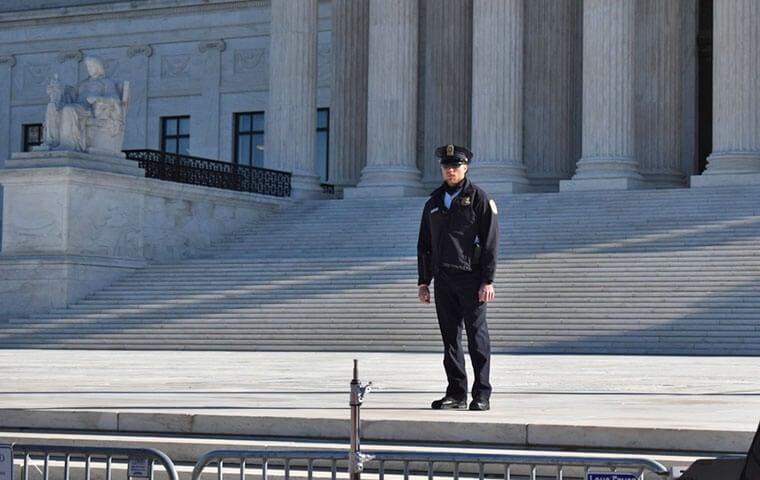Table of Contents
- Legal Restrictions on Carrying Pepper Spray in Government Buildings
- Understanding Security Protocols and Screening Procedures
- Exceptions and Permissible Circumstances for Pepper Spray Use
- Best Practices for Carrying Pepper Spray Safely and Responsibly in Public Spaces
- Wrapping Up
Legal Restrictions on Carrying Pepper Spray in Government Buildings
When considering carrying pepper spray into government buildings, it is essential to understand that many jurisdictions enforce strict regulations on such self-defense items. Federal, state, and local laws often intersect, creating a complex legal landscape. In many cases, government facilities like courthouses, administrative offices, and legislative buildings have explicit prohibitions against weapons and defensive sprays on the premises. These regulations aim to maintain safety and order, preventing potential misuse or escalation of conflicts within secure spaces.
Specific restrictions may include:
- Complete bans on carrying any type of pepper spray or other chemical irritants inside.
- Mandatory storage of such items outside the building or in secured lockers.
- Requirements for obtaining special permissions or permits if the spray is to be brought in for official use.
Violating these rules can lead to fines, confiscation of the item, or even legal charges depending on the severity and jurisdiction. It’s strongly advised to consult the specific building’s security policies or contact the administrative offices beforehand to ensure compliance and avoid unnecessary legal trouble.
Understanding Security Protocols and Screening Procedures
Navigating the security protocols in government buildings requires a clear understanding of the rules and the rationale behind them. These facilities implement strict screening procedures designed to protect everyone inside, including employees and visitors. Security personnel typically use metal detectors, X-ray machines, and manual inspections to ensure no prohibited items enter the premises. It’s crucial to know that these measures are not only for safety but also to maintain a controlled environment where sensitive operations can be conducted without risk.
When it comes to carrying personal defense items like pepper spray, most government buildings enforce zero-tolerance policies due to potential safety hazards and legal restrictions. The screening process often includes checking bags and personal belongings for items that could be considered weapons. Visitors should expect:
- Clear communication of prohibited items upon entry
- Confiscation of any unauthorized objects without return
- Possible denial of entry if violations occur
Exceptions and Permissible Circumstances for Pepper Spray Use
While many government buildings enforce strict security protocols that may prohibit the carrying of pepper spray, there are certain exceptions and permissible circumstances where its possession and use may be legally justified. For example, individuals who require pepper spray for personal safety, such as those with documented threats against them, might be allowed to carry it if prior authorization or notification is given to the relevant security authorities. Additionally, law enforcement officers and authorized security personnel often have exemptions due to their occupational responsibilities, enabling them to carry and deploy pepper spray when necessary to maintain order and ensure safety.
Understanding the nuances of these exemptions is crucial. Permissible circumstances often include situations involving:
- Self-defense against immediate physical threats inside or near government premises.
- Official duties of security staff or law enforcement authorized to carry defensive tools.
- Special permissions granted through legal or administrative channels for individuals with verified safety concerns.
Always check local and federal regulations as well as building-specific policies before carrying pepper spray in government buildings. Violating these rules can lead to legal consequences, including confiscation, fines, or even arrest. Staying informed and compliant ensures your personal safety tools are used responsibly and within the law.
Best Practices for Carrying Pepper Spray Safely and Responsibly in Public Spaces
When carrying pepper spray in public spaces, especially sensitive areas like government buildings, it’s crucial to prioritize both safety and legality. Always keep your pepper spray easily accessible yet secure, such as clipped to your belt or stored in a designated pocket. Avoid exposing the canister unnecessarily to prevent causing alarm. Regularly check your local and federal regulations, as some government buildings prohibit carrying pepper spray entirely or require prior permission. Remember, misuse or accidental discharge can lead to serious legal consequences and health risks for bystanders.
To ensure responsible use, consider the following practices:
- Understand how to operate your pepper spray effectively by practicing with a trainer model.
- Store it away from children and pets to avoid accidental exposure.
- Inform security personnel if carrying pepper spray is allowed but needs to be declared upon entry.
- Avoid displaying or brandishing pepper spray unless you are legitimately faced with a threat.
- Keep track of expiration dates and replace your spray accordingly to ensure reliability.
Following these guidelines not only enhances your personal safety but also demonstrates respect for public safety regulations and the comfort of others in shared environments.
Wrapping Up
In conclusion, while the desire to carry pepper spray for personal safety is understandable, it’s crucial to recognize that government buildings often have strict regulations prohibiting such items. Before bringing pepper spray into any government facility, always check local laws and specific building policies to ensure you remain compliant and avoid any legal complications. Staying informed and prepared helps maintain security and peace of mind in public spaces. Remember, safety starts with knowing the rules-and respecting the boundaries set by those who manage these important institutions.Check Our Other Blogs
- StunGun – Your Trusted Source for Stun Guns, Laws, and Self-Defense Tips
- PepperSprayLaws – Your Trusted Resource for Pepper Spray Information
- StunGunLaws – Your Trusted Guide to Stun Gun Legality and Safety




